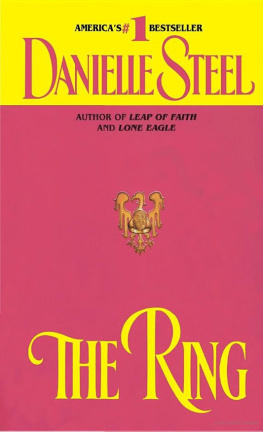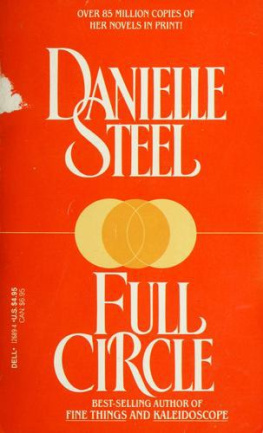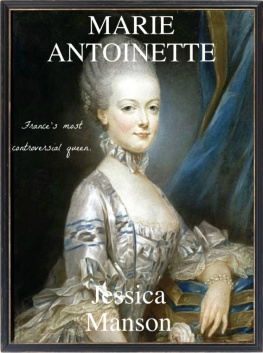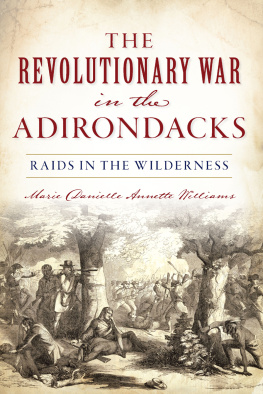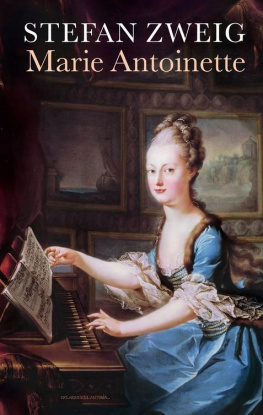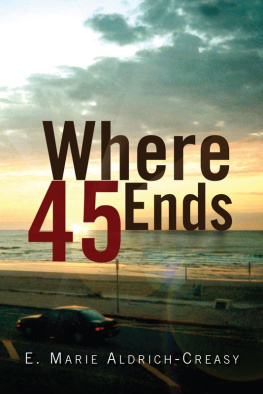About the Author
Danielle Steel has been hailed as one of the world's most popular authors, with over 480 million copies of her novels sold. Her many international best-sellers include The Cottage, The Kiss, Lone Eagle, Journey, The House on Hope Street, The Wedding, Irresistible Forc es, Granny Dan, Bittersweet, and other highly acclaimed novels. She is also the author of His Bright Light, the story of her son Nick Traina's life and death.
a cognizant original v5 release october 26 2010
Chapter 1
M arie-Ange Hawkins lay in the tall grass, beneath a huge, old tree, listening to the birds, and watching the puffy white clouds travel across the sky on a sunny August morning. She loved lying there, listening to the bees, smelling the flowers, and helping herself to an apple from the orchards. She lived in a safe, protected world, surrounded by people who loved her. And she particularly loved running free in the summer. She had lived at the Chateau de Marmouton for all of her eleven years, and roamed its woods and hills like a young doe, wading ankle deep in the little stream that ran through it. There were horses and cows, and a proper barnyard on the lower property at the old farmhouse. The men who worked the farm always smiled and waved when they saw her. She was a laughing, happy child, and a free spirit. And most of the time, as she wandered through the tall grass, or picked apples and peaches in the orchard, she was barefoot.
You look like a little gypsy! her mother scolded her, but she always smiled when she said it. Frangoise Hawkins adored both her children.
Her son Robert had been born shortly after the war, eleven months after she married John Hawkins. John had started his business, exporting wine, at the same time, and within five years, he had made an immense amount of money. They had bought the Chateau de Marmouton when Marie-Ange was born, and she had grown up there. She went to the local school in the village, the same lyce that Robert had attended. And now, in a month, he was leaving for the Sorbonne, in Paris. He was going to study economics, and eventually work in his father's business. The business had grown by leaps and bounds, and John himself was amazed at how successful it had become, and how comfortable they were as a result of it. Frangoise was very proud of him. She always had been. Theirs was a remarkable and romantic story.
In the last months of the war, as an American soldier, John had been parachuted into France, and broken a leg when he landed in a tree on Frangoise's parents' small farm. She and her mother had been there alone, her father was in the Resistance, and had been out at one of the secret meetings he attended nearly every night. They had hidden John in the attic. Frangoise had been sixteen then, and more than a little dazzled by John's tall, midwestern good looks and charm. He was a farm boy himself and only four years older than she was. Her mother had kept a watchful eye on them, afraid that Frangoise would fall in love with him and do something foolish. But John had been respectful of her, and as much in love eventually as Frangoise was. She taught him French, and he taught her English, in their whispered conversations at night, in the pitch black of the attic. They had never dared to light so much as a candle, for fear that the Germans would see them. He had stayed with them for four months, and by the time he left, Frangoise was heartbroken over his going. Her father and some of his friends from the Resistance had spirited him back to the Americans, and he had eventually taken part in the liberation of Paris. But he had promised Frangoise he would come back for her, and she knew without a doubt that he would.
Her parents were killed in the final days just before the liberation, and she was sent to Paris to live with cousins. She had no way of reaching John, his address had been lost in the chaos, and she had no idea he was in Paris. Long afterward, they learned that they had been within a mile or two of each other most of the time, as she lived just off the Boulevard Saint-Germain, and he never knew it.
John was shipped back to the States before seeing her again, and returned to Iowa. He had his own family worries. His father had been killed in Guam, and he had to take care of his own family's farm with his mother, sisters, and brothers. He wrote to Frangoise as soon as he got back, but his letters were neither returned, nor answered. They never reached her. And it was a full two years before he had saved up enough money to go back to France, to see if he could find her. He had been obsessed with her since he left. And when he reached the farm where they had met, he found that it had been sold and was inhabited by strangers. And all the neighbors knew was that Frangoise's parents were dead and she had gone to Paris.
He went there next, and used every resource he could think of to find her, the police, the Red Cross, the registry at the Sorbonne, as many local schools as he could visit. And on the day before he was to leave, sitting in a small caf on the Left Bank, as though by a miracle, he saw her, walking slowly along the street in the rain, with her head down. At first, he thought it was a stranger who just looked like Frangoise, but as he glanced at her more closely, and then ran after her, feeling foolish, but knowing he had to try one last time, she burst into tears the moment she saw him and threw her arms around him.
They spent the evening together at her cousins' home, and he left for the States the following morning. They corresponded for a year after that, and then he finally returned to Paris, to stay this time. She was nineteen, and he was twenty-three by then, and they were married two weeks after he got back to Paris. In the ensuing years, nineteen of them, they had never left each other for a moment. They left Paris after Robert was born, and John eventually said he felt more at home in France than he ever had living in Iowa with his parents. It was meant to be, they always said, as they smiled at each other whenever they told their story. Marie-Ange had heard the tale a thousand times, and people always said it was very romantic.
Marie-Ange had never met her father's relatives. His parents had died before she was born, and both his brothers. A sister had died a few years before, and his other sister was killed in an accident when Marie-Ange was a baby. His only surviving relative was an aunt on his father's side, but Marie-Ange could tell from the way her father talked about her that he didn't like her. None of his relatives had ever come to France, and he had said more than once that they thought he was crazy when he moved to Paris to be with her mother. Frangoise's cousins had died in an accident when Marie-Ange was three, she had no grandparents, and her mother had no brothers or sisters. The only family Marie-Ange had were her brother Robert, and her parents, and a great-aunt somewhere in Iowa, whom her father hated. He had explained to Marie-Ange once that she was mean-spirited and small-minded, whatever that meant. They no longer even corresponded. But Marie-Ange felt no lack of family. Her life was full, and the people in it treated her like a blessing and a joy, and even her name said she was an angel. Everyone thought of her that way, even her brother Robert, who loved to tease her.


